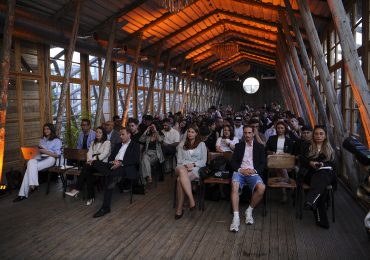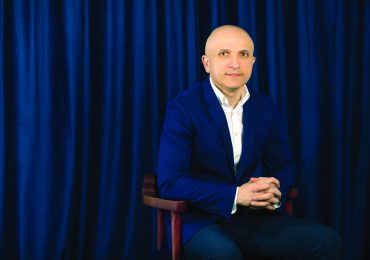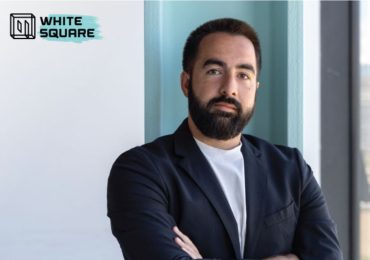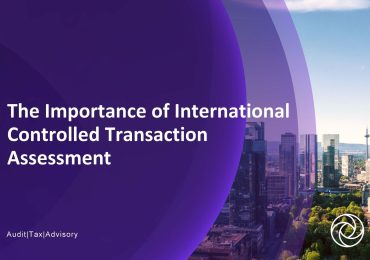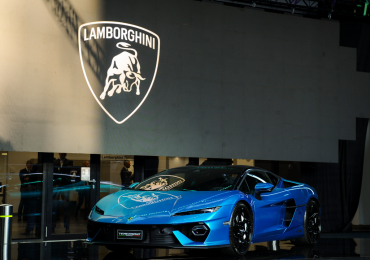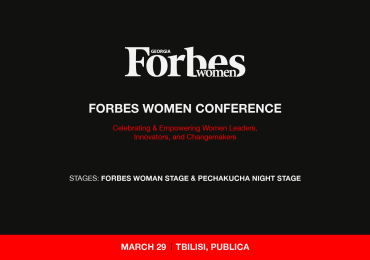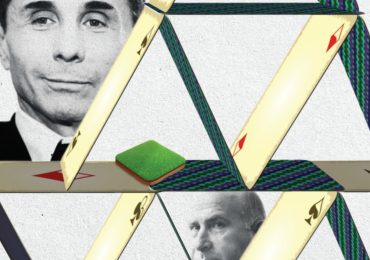One year into Russia’s all-out war on Ukraine, the world has profoundly changed. Ukraine has proved that it is not a pawn in international politics but is a strong nation, fighting for sovereignty and independence. Russia has been committing crimes against humanity and has become an international pariah. This past year the NATO alliance had declared the Russian Federation as the most significant and direct threat to Allies’ security, and to peace and stability in the Euro-Atlantic area. Earlier this month, Ukraine Defense Contact Group met at Ramstein Air Base to discuss delivery of heavy offensive weaponry to Ukraine. At the annual Munich Security conference global leaders and policy makers discussed the new challenges and next steps on strengthening global security and supporting Ukraine’s fight.
In an exclusive zoom interview with FORBES, Ukraine’s Minister of Defense, Oleksii Reznikov, looks back at the past year and shares insights on the current state and direction of the war.
Katya Soldak: Let me begin by asking you to comment on the recent developments, such as Russia’s regular barrages of missiles and drones across Ukraine. Are they launching a new offensive?
Oleksii Reznikov: When the Russians realized they couldn’t defeat Ukraine, they started terrorizing civilians. Their goal is to destroy Ukraine’s critical infrastructure, leaving the country in darkness and cold, without water, heat and electricity. They hoped that this would cause such panic that people would put pressure on the government to negotiate peace on the aggressor’s terms. But this tactic didn’t work. Since October 10, they have launched barrages of missile attacks all over Ukraine, using cruise missiles, ballistic missiles and Iranian drones. Our air defense systems, using old Soviet systems such as the BUK and the S300, work well. We’re also using modern systems that we’ve received from our partners. So, we have a good defense although it’s not perfect. Our will to resist and our morale haven’t faltered. We plan to win this war. Every couple of weeks, sometimes more often, the Russians unleash a barrage of air strikes on Ukraine. They’re testing our defense in the frontlines near Bakhmut. It’s been going on for about five months. They’re using the Wagner paramilitary group, which employs criminals recruited from prisons.
A real offensive, with tanks and artillery, we still haven’t seen. But they’re demonstrating potential in the south, and the offensive that everyone is expecting could still happen.
Katya Soldak: Earlier this month Ukraine’s partners confirmed the delivery of tanks and discussed the delivery of offensive weaponry; you continue working on trying to get fighter jets. Where do you think Ukraine is today, in Ukraine’s mission to get support from the world and to get weapons to fight Russian aggression?
Oleksii Reznikov: Last March, when the world realized that Ukraine wouldn’t be defeated in three days, the expectation that Kyiv would be captured, and that all of Ukraine would fall in three weeks, many were surprised. The expectation that they would face only some guerilla warfare didn’t pan out. The entire country rose up to defend itself. Not just our military forces but every citizen: civilians, volunteers, babusi and dedusi (FORBES: Ukrainian for ‘old grandmothers and grandfathers’) all started to fight to the best of their ability. That allowed the world to think that Ukraine needed to be supported by weapons. The world started making important decisions. HIMARS became game-changers in this fight. That allowed us to conduct a successful combat operation first in the Kharkiv region, then the Kherson region. Our partners started giving us sophisticated weapons.
I was afraid last summer that Ukraine fatigue would set in, and the help would dry up. Luckily, that didn’t happen, and the Ramstein contact group, created under the leadership of the US, the so-called anti-Kremlin coalition of more than 50 countries, more than belong to NATO, continues to work. I have the opportunity to tell their ministers of defense what kinds of modern systems we need and what we’ll be using them for. It’s been very clear: at first we had to stop them (FORBES: Russians), then stabilize the front and then start a counter-offensive. And then, to liberate our territories, from the Chernihiv region to the Kharkiv region to the Kherson region.
Every country makes its own decisions according to its priorities and societal needs. Prime ministers and presidents decide what their society wants. Our president, [Volodymyr] Zelenskyy, together with the US and Europe, let the entire world know how Ukraine would fight “the second army in the world,” and the world believes that’s possible. This is very important. The world now believes it’s possible to stop Russia on the battlefield.
NATO’s strategy, according to the summit in Madrid, has been defined for the next 10 years. The allies agreed that the Russian federation is the most significant and direct threat to their security and to peace and stability. The world understands that in order for NATO solders not to lose their lives – because Ukrainians are already losing theirs – it’s better to give Ukraine weapons and help reduce Russian military capabilities. To weaken Russia so it doesn’t pose a threat to the NATO allies.
Our partners understand that this is not a one-day process. We discuss not only specific weaponry and military equipment but also its maintenance, repairs, spare parts production and ammunition. Everyone understands that the war will go on for quite some time. We don’t hide anything, we share information with our partners.
All ministers in the group say: we are with you to the end of this war, which will end with Ukraine’s victory; we believe it. This is important for the entire civilized world.
Katya Soldak: Tell us about what it’s like to be the Defense Minister when the country is at war? Does Zelenskyy government remain stable?
Oleksii Reznikov: Zelenskyy’s government is stable, all the ministers are the same people as at the beginning of the war. In some cases, the deputies have changed but those aren’t titanic changes.
I was appointed to be the Minister of Defense three months before the war started, on November 4, 2022. A lawyer by training, the only military experience I had was serving in the Soviet Army when I was young. My plan was to reform the ministry, update the procurement and logistics system and create housing for military personnel, but all that was put on hold once the war started. Half of the ministry was paralyzed. I worked with only a few associates, in bunkers, changing locations, because Kyiv was surrounded.
In this military crisis, many details had to be kept secret at first, and it hasn’t been easy to maintain a proper balance between transparency and the government’s need to conduct certain public affairs in secrecy. Society starts having doubts, which is normal for a democratic state. We barely had time for any communication with the public after the war started. Now that members of parliament have returned to regular work, there is more normalcy.
We’re changing the legislation a little bit, which would provide transparency in time of war without compromising safety. I’m ready to lead this effort, even before the war ends, and I would like to continue working on reforms to get rid of anything post-Soviet: to create a system of public control and educational reforms and bring in outside expertise. When we finish this war, we’ll have a head start and it will be easier.
I am an attorney, a lawyer. However, I did 163 jumps as a skydiver when I served in the army. I’ve also dived in the ocean 300 times. As a hobby, I’m good at using a sniper rifle. These are my civilian hobbies. In 2004, I was an attorney to Ukraine’s president Viktor Yuschenko during the Orange Revolution. We established the rule of law during that fraudulent election and won, so Viktor Yanukovych didn’t become an unlawful president in 2004. That’s when I realized that I must protect democratic values and liberties. I want to live in a European Ukraine.
I’m traveling a lot but I’m now based in Kyiv. My wife, my daughter and her family, my son, my two grandchildren – the entire extended family is in Kyiv. The grandchildren go to school; if there is an air raid in Kyiv, they go to a bomb shelter.
Katya Soldak: Americans naturally wonder if there is an efficient system of control and accountability for all the aid Ukraine receives; after all it’s over 100 billion dollars at this point. What are the existing mechanisms that keep track of all the military and other aid Ukraine is receiving, and what protects it from corruption?
Oleksii Reznikov: All monetary aid that we receive from the US, the IMF and the World Bank is used only for social needs, which are determined by the ministries of finance and social policy. It goes to rebuild the infrastructure, to repair generators, etc. Not a cent is spent on the military and the war. However, if a certain program decides to give us weapons, or some specific things for the war, we’re very grateful and it goes only to weaponry, military equipment, ammunition, etc. We’re using NATO’s procurement logistics system, the same one used by NATO countries. NATO headquarters and the European Command can track each piece of weaponry and see where it ends up, in which battalion and which brigade.
Western inspectors can trace each piece of weaponry in the system, and if they want to see it – they can come to the field and check on it with their own eyes. We’re totally transparent for our partners. The more our partners trust us, the more they help us with weapons. I’m confident that after our victory, Ukraine – which already is a de facto NATO country – will become a NATO country de jure.
Katya Soldak: How do you see the current course and state of the war?
Oleksii Reznikov: Right now, there is a process of amassing resources on both sides. Each side is ready to take the initiative, and we’re waiting. We’re ready for an offensive by the Russians and we’re preparing a counter-offensive. Our key goal in this war is to win by freeing all temporarily occupied territories, liberating our people and holding responsible those accountable before an international tribunal. We believe that together with the entire civilized world, we can do this. We have proved this past year that Ukraine is able not only to stop the Russian army but to defeat it.
No one believed that David would defeat Goliath but it happened thanks to that stone in a sling. In our case, David, with the help of the weapons from our friends, will defeat Golliath.
Originally published on: forbes.com
Forbes Georgia: სარედაქციო გუნდი




